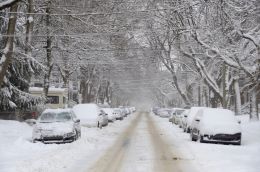Mr. Martijn de Schepper
Company law
Attorney: Warm, committed team player. Excels at finding creative strategies and solutions.
Written by Mr. Martijn de Schepper
 Last week, for the second time this winter, the Netherlands was blanketed by a thick layer of snow and brought to a standstill by the busiest rush hour on record. When snow leads to cancelled appointments and broken promises, that can cost money. Who’s supposed to pay for this?
Last week, for the second time this winter, the Netherlands was blanketed by a thick layer of snow and brought to a standstill by the busiest rush hour on record. When snow leads to cancelled appointments and broken promises, that can cost money. Who’s supposed to pay for this?
The basic rule is that contractual promises must be kept. If one of the contracting parties fails to do so, he must compensate any loss or injury the other party suffers, unless the blame for his failure to comply lies elsewhere.
The law states that a party cannot be blamed for failing to satisfy obligations if the failure was caused by force majeure. Whether force majeure applies depends on the circumstances of the case. Legislation provides some examples, but force majeure remains a vague concept and causes much uncertainty in practice. For example, what happens if a system administrator’s computer network goes down, leaving him unable to resolve customers’ problems for a day? And what if those customers are unable to keep their promises as a result?
Parties can agree in a contract (or in standard terms and conditions) what constitutes force majeure in their dealings with each other. In that case, the legislation acts as a safety net for any areas not covered by contract. Weather conditions, traffic queues, break-ins, fire or power shortages; these are just some examples that can be included in force majeure provisions.
A sensible approach is to make a list of all the risks affecting you and ensure you have a solution prepared. You can classify these situations as force majeure in your standard terms and conditions. You may be able to get the other party to agree that you are only obliged to make efforts to achieve a target, without guaranteeing a particular result. Not every customer will settle for that, though. All the more reason to ensure that your standard terms and conditions apply and all the legal aspects of your order confirmation are watertight.
This website uses cookies to improve our services and website